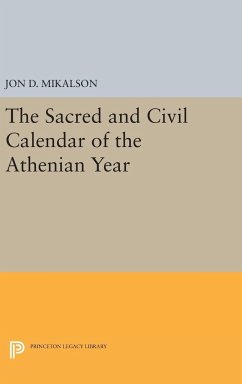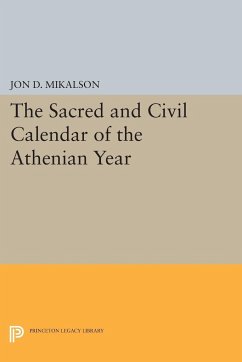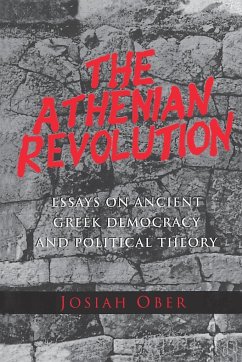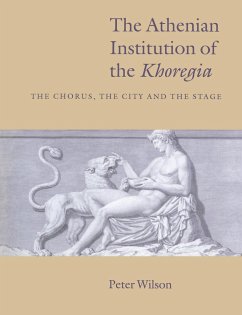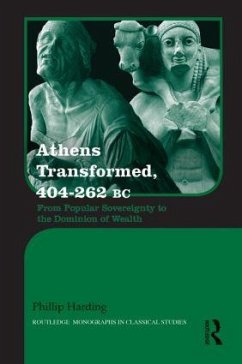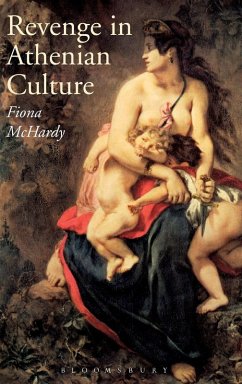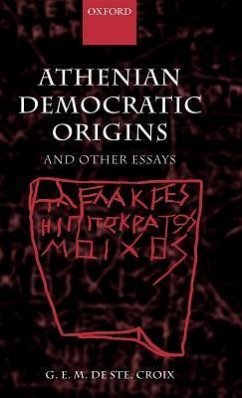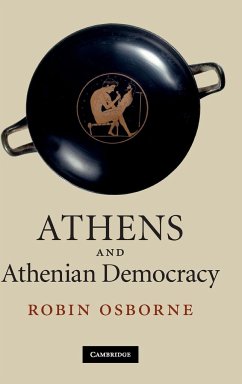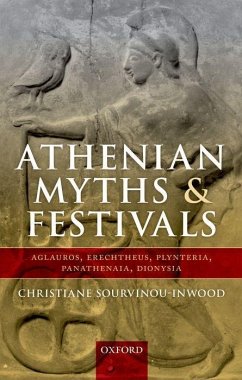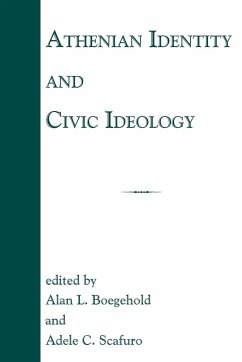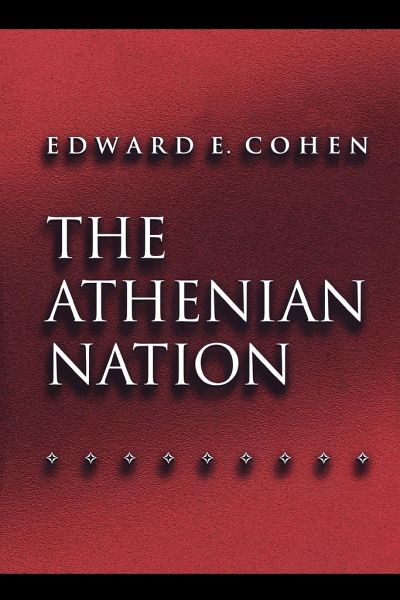
The Athenian Nation

PAYBACK Punkte
20 °P sammeln!
Challenging the modern assumption that ancient Athens is best understood as a polis, Edward Cohen boldly recasts our understanding of Athenian political and social life. Cohen demonstrates that ancient sources referred to Athens not only as a polis, but also as a "nation" (ethnos), and that Athens did encompass the characteristics now used to identify a "nation." He argues that in Athens economic, religious, sexual, and social dimensions were no less significant than political and juridical considerations, and accordingly rejects prevailing scholarship's equation of Athens with its male citize...
Challenging the modern assumption that ancient Athens is best understood as a polis, Edward Cohen boldly recasts our understanding of Athenian political and social life. Cohen demonstrates that ancient sources referred to Athens not only as a polis, but also as a "nation" (ethnos), and that Athens did encompass the characteristics now used to identify a "nation." He argues that in Athens economic, religious, sexual, and social dimensions were no less significant than political and juridical considerations, and accordingly rejects prevailing scholarship's equation of Athens with its male citizen body. In fact, Cohen shows that the categories of "citizen" and "noncitizen" were much more fluid than is often assumed, and that some noncitizens exercised considerable power. He explores such subjects as the economic importance of businesswomen and wealthy slaves; the authority exercised by enslaved public functionaries; the practical egalitarianism of erotic relations and the broad and meaningful protections against sexual abuse of both free persons and slaves, and especially of children; the wide involvement of all sectors of the population in significant religious and local activities. All this emerges from the use of fresh legal, economic, and archaeological evidence and analysis that reveal the social complexity of Athens, and the demographic and geographic factors giving rise to personal anonymity and limiting personal contacts--leading to the creation of an "imagined community" with a mutually conceptualized identity, a unified economy, and national "myths" set in historical fabrication.




